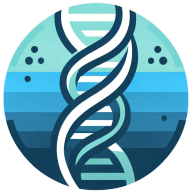How Can a Serendipitous Discovery Alter the Course of Research?
Exploring unexpected twists in scientific research, we begin with a Clinical Nutritionist's account of how dietary patterns unveiled a surprising connection to skin health. Alongside this expert perspective, we've gathered additional answers that highlight the unpredictable nature of discovery. From findings that inspire methodological innovation to those that challenge established doctrines, explore how serendipity can alter the course of scientific study.
- Dietary Patterns Reveal Skin Health Link
- New Hypotheses Spark Groundbreaking Research
- Unexpected Findings Redirect Research Funding
- Accidental Discoveries Inspire Methodological Innovation
- Cross-Disciplinary Collaborations Uncover Innovations
- Serendipity Challenges Established Scientific Doctrines
Dietary Patterns Reveal Skin Health Link
There was a time when I was researching the effects of a specific dietary pattern on gut health. My initial focus was on tracking the expected changes in gut microbiota based on previous studies. However, during the process, I noticed something unexpected—patients who followed the diet also reported a significant improvement in their skin conditions, which wasn't something we were specifically monitoring.
Curious about this, I decided to dig deeper and shifted part of my research to explore the connection between gut health and skin health. What started as a side observation turned into a major focus, leading to new insights into how dietary changes could impact not just the gut but also the skin. This serendipitous discovery opened up a whole new area of research for me and altered the direction of my work in ways I hadn't anticipated. It was a powerful reminder of the importance of staying open to unexpected findings and letting them guide your research when they show up.

New Hypotheses Spark Groundbreaking Research
A serendipitous discovery often leads to the creation of new scientific hypotheses that were previously unthinkable. Such an event can open doors to groundbreaking research, pushing the boundaries of known science. The implications of this are far-reaching, as they can result in the development of innovative technologies or medical treatments.
By challenging researchers to think outside the box, these discoveries can dramatically alter scientific understanding. Consider what unexpected avenues may lie in your own field of study, and dare to explore them.
Unexpected Findings Redirect Research Funding
When researchers stumble upon an unexpected finding, it can sometimes redirect funding and resources towards these new, unexplored areas. This reallocation can foster the growth of emerging fields that might have otherwise remained obscure or underfunded. It can lead to new research teams being formed and an increased focus on areas with potentially high rewards.
Such shifts in funding can be transformative, highlighting the importance of flexibility in research finance. If you're involved in funding decisions, remain open to supporting new areas of inquiry that show promise.
Accidental Discoveries Inspire Methodological Innovation
Serendipity in research can act as a catalyst for changing the way scientists approach their methodology. An accidental discovery might suggest that the traditional methods are not the only paths to knowledge, prompting a reevaluation of standard practices. This can lead to a more creative and innovative approach to problem-solving in science, encouraging researchers to experiment with unconventional techniques.
Methodological shifts of this nature can significantly enhance the efficiency and effectiveness of research. Encourage a culture of methodological innovation in your research environment to capitalize on potential serendipitous discoveries.
Cross-Disciplinary Collaborations Uncover Innovations
Unexpected discoveries can sometimes fuel collaborations between different disciplines that normally operate independently. When a finding has implications across various fields, it encourages experts to work together and combine their knowledge. Such cross-disciplinary partnerships can lead to innovations that are greater than the sum of their parts.
These alliances might not only solve the immediate puzzle but can pave the way for solutions to other, seemingly unrelated problems. Be receptive to the idea of collaborating with those from other disciplines to foster innovation in your research.
Serendipity Challenges Established Scientific Doctrines
Serendipitous discoveries have the power to challenge and even overturn established scientific doctrines. When a new finding contradicts what is accepted as fact, it forces the scientific community to reassess and, at times, rewrite theories that have been held for years or even decades. This process is fundamental to scientific progress, as it ensures that our understanding of the world is always evolving and improving.
History shows that these challenges to orthodoxy can be disruptive but are often necessary for significant leaps forward in science. Stay curious and question existing beliefs; they may be the next to be redefined by a serendipitous discovery.

